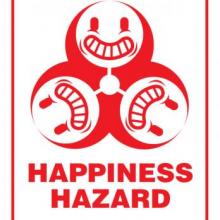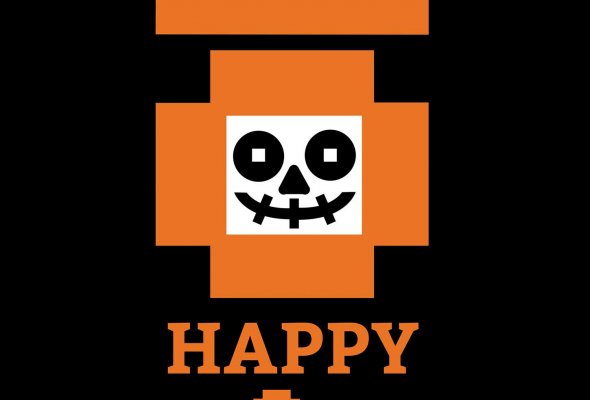The "interests and hobbies" section on a CV often includes outdoor activities, coaching baseball… and hiring prostitutes? For resort employee Neil Jorgensen of Kalona, Iowa, hiring prostitutes may be a prerequisite for evening and weekend fun – but what happens when the party moves to the workplace?
After completing one year of employment with the Riverside Casino and Golf Resort, Jorgensen received a free night’s stay at the resort in thanks for his labor. Use of prostitutes was not included in this recognition package, to Jorgensen’s dismay, and so he requested some on-the-house hookers from fellow colleagues at his service.
Strong performance reviews couldn’t save this sex-seeking employee’s job, as Jorgensen’s drunk-scapes lead to his immediate dismissal from the resort (and his job). Common firing reasons include criminal activity on the job, but if Jorgensen wasn’t technically working when he sought out his illegal lover – can the resort justify his firing?
Personal Life Punishable in a Court of Labor Law?
While workers are fired for lots of reasons, most of those justifications stem from undesirable behaviors in the workplace. Unless criminal (like in Jorgensen’s case), most questionable employee actions outside of the workplace haven’t reached HR radar… until now!
With a corporate image to honor and protect, managers are finding creative ways to fire employees for activities they enjoy beyond 9-5. From posing for nudie magazines, to joining racy online dating sites, to posting unprofessional pics on Facebook, lots of personal activities are finding their way onto your friendly neighborhood HR worker’s desk. But if the funny business happens after hours (and outside of the office), what right do managers have to fire their employees?
Take the case of US prison employee Heather Hull who was fired from her job for posing as a prison guard in Playboy magazine. First suspended from her job, Hull was later fired when photos were published for a second time in a later edition. Hull has since been re-hired as the prison faced uproar regarding the unfounded firing – but Hull hasn’t received compensation for lost wages.
Be Yourself without Getting Fired
US Labor laws protect against unfounded firings. In the above cases, this legal timbit comes in handy: US workers can’t be fired for doing stuff deemed to be immoral or ethically wrong by employers. (AKA Violation of Public Policy) Too bad that ethics and morals are inherently wishy-washy… up for debate in all states.
If you fear your alter-ego will get you fired, make sure to read and translate you state’s legal jargon on the subject of firing. In the age of social networking and lightning fast word-of-mouth, consider keeping your scandalous pastimes out of the workplace. And whatever you do: don’t take advantage of your “interested and hobbies” C.V. section to detail your tabooed pastimes.
Beware! Your Boss is Listening! Poster
After completing one year of employment with the Riverside Casino and Golf Resort, Jorgensen received a free night’s stay at the resort in thanks for his labor. Use of prostitutes was not included in this recognition package, to Jorgensen’s dismay, and so he requested some on-the-house hookers from fellow colleagues at his service.
Strong performance reviews couldn’t save this sex-seeking employee’s job, as Jorgensen’s drunk-scapes lead to his immediate dismissal from the resort (and his job). Common firing reasons include criminal activity on the job, but if Jorgensen wasn’t technically working when he sought out his illegal lover – can the resort justify his firing?
Personal Life Punishable in a Court of Labor Law?
While workers are fired for lots of reasons, most of those justifications stem from undesirable behaviors in the workplace. Unless criminal (like in Jorgensen’s case), most questionable employee actions outside of the workplace haven’t reached HR radar… until now!
With a corporate image to honor and protect, managers are finding creative ways to fire employees for activities they enjoy beyond 9-5. From posing for nudie magazines, to joining racy online dating sites, to posting unprofessional pics on Facebook, lots of personal activities are finding their way onto your friendly neighborhood HR worker’s desk. But if the funny business happens after hours (and outside of the office), what right do managers have to fire their employees?
Take the case of US prison employee Heather Hull who was fired from her job for posing as a prison guard in Playboy magazine. First suspended from her job, Hull was later fired when photos were published for a second time in a later edition. Hull has since been re-hired as the prison faced uproar regarding the unfounded firing – but Hull hasn’t received compensation for lost wages.
Be Yourself without Getting Fired
US Labor laws protect against unfounded firings. In the above cases, this legal timbit comes in handy: US workers can’t be fired for doing stuff deemed to be immoral or ethically wrong by employers. (AKA Violation of Public Policy) Too bad that ethics and morals are inherently wishy-washy… up for debate in all states.
If you fear your alter-ego will get you fired, make sure to read and translate you state’s legal jargon on the subject of firing. In the age of social networking and lightning fast word-of-mouth, consider keeping your scandalous pastimes out of the workplace. And whatever you do: don’t take advantage of your “interested and hobbies” C.V. section to detail your tabooed pastimes.
Beware! Your Boss is Listening! Poster
Topics:
























